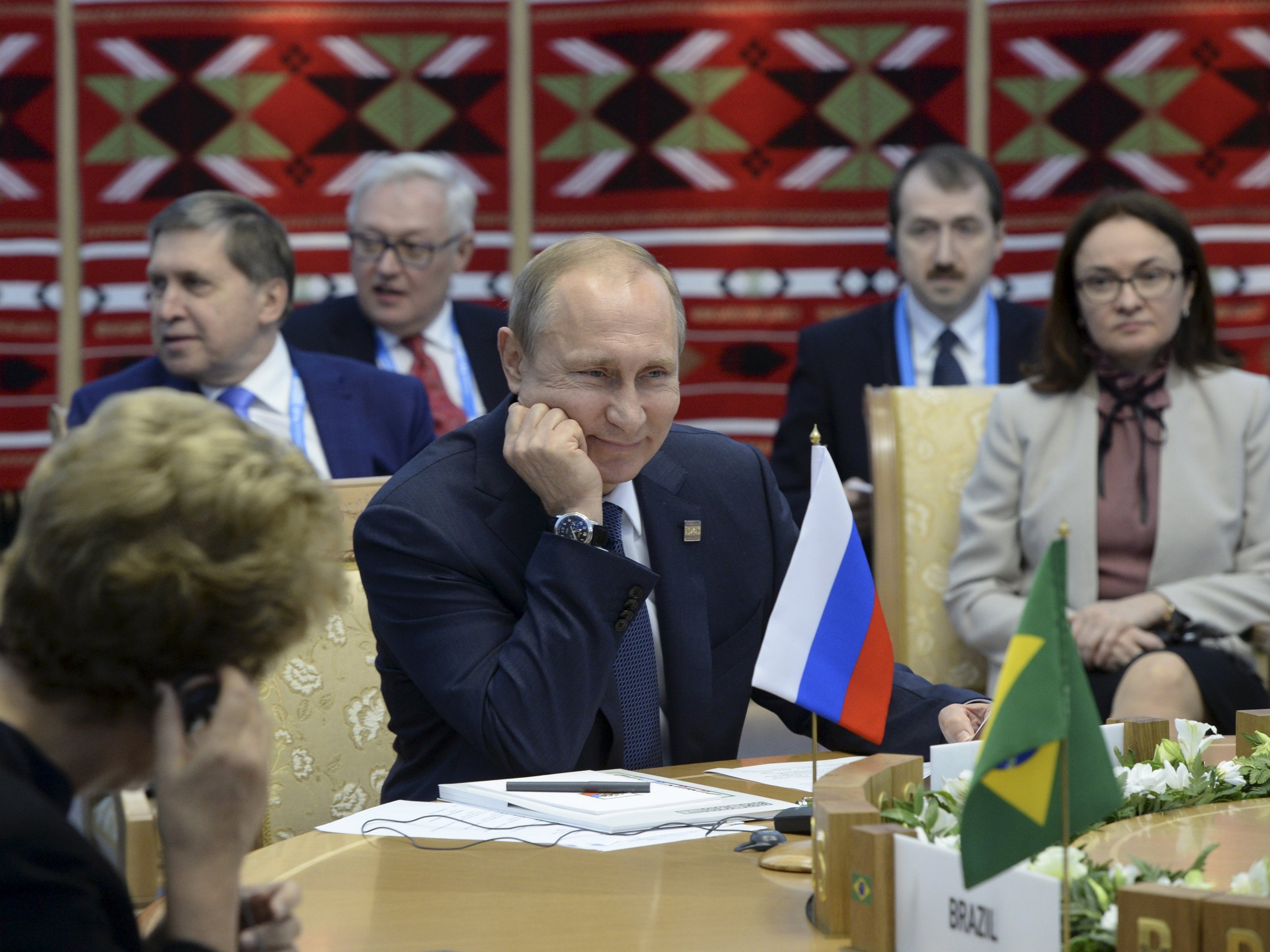
Russia's five-month-long campaign in Syria came to an end on Monday with Vladimir Putin's declaration that his forces can pull out, having "achieved their goals." Russia's withdrawal was accompanied by thanks from Syrian President Bashar al-Assad, whose regime Putin appears to have successfully propped up. Here is why the Russian president can indeed claim victory on several fronts.
Putin Looks Like a Winner to Russians
The Kremlin was quick to highlight on Tuesday morning that Putin's announcement was not tied to any agreements with other countries at the Syrian peace talks. He had made the call simply because he felt Russia had accomplished its mission in Syria. He leaves on his own terms, declaring victory in front of his home crowd.
"From a domestic political perspective the intervention has been a resounding success, particularly given the impending parliamentary elections in September," Daragh McDowell, Eurasia analyst at Verisk Maplecroft, says. "Putin will portray Russia as a global power and a military force that—in contrast to the West—has managed to wage a short, victorious and largely bloodless campaign against terrorism without getting bogged down in a quagmire of the aftermath."
Putin's approval ratings peaked during Russia's interventions in Ukraine and Syria, and Keir Giles, Russian military analyst at London-based think tank Chatham House, believes the president's image will be enforced by his declaration to pull out.
"Domestically this will absolutely do well," Giles says. "It is mission accomplished as far as he is concerned and it will reinforce his reputation as a capable and forceful leader among Russians."
Putin Has More Influence in the Middle East
Besides being reinvigorated by the positive media coverage and support his intervention received back home, Putin has also forced Moscow's agenda in Syria onto the bargaining table with the West.
"There is some justification in seeing this as a victory for Russia in that they have stabilized the situation for Assad," Giles says. "They have pushed the U.S. back on its policy not to negotiate with Assad and they have forced the U.S. into treating Russia as an equal partner, as well as bringing the Syrian opposition to the table."
Russia's diplomatic push on these issues was unsuccessful last year, as both the Syrian opposition and U.S.-allies Saudi Arabia refused to negotiate with Assad. Syrian representatives were included in U.N.-brokered talks eventually, however, as was Russia's ally in Syria: Iran.
"Putin has gotten recognition from the U.S. that Russia is an influence on a par with the U.S. in the Middle East," Giles adds.
Putin Has Reinforced His Deployments in Syria
"We don't know how much will be withdrawn and how fast," says Giles "We call this a withdrawal but it could be nothing of the kind. Putin still has a substantial amount of military assets in country."
Prior to Russia's intervention in Syria, Moscow's sole military facility was a supply base on the port of Tartus. Russian servicemen in Syria had to be sent without much publicity and officially they were not allowed to take part in combat but only function as advisers or instructors.
"Based on what we have seen in the last two years, we know that ordinarily it is not true whenever Putin says that his armed forces will or won't do something. The forces are leaving behind a lot more than they had before the intervention."
Not only has the Tartus facility been reinforced to the status of a base but Russia now has an airbase in Syria
"The intervention has allowed Russia to qualitatively expand its footprint in Syria, by upgrading the Tartus naval facility and building the Khmeimim airbase in Latakia, which will continue to house the S-400 air defense system and some form of air strike capability and around 1,000 military personnel," McDowell adds.
Putin Leaves Believing His Intervention Has Been Vindicated
Russia shifted its focus to Syria in September 2015, just as Ukraine was enjoying a period of relative peace—its first since pro-Russian violence erupted there in 2014. During the first weeks of Russia's campaign in Syria, Ukraine's ceasefire saw several days without violations. Russia's turn away from Syria could spell more trouble for its pro-Western neighbors, including Ukraine, the Baltics and Georgia.
"The Syrian campaign sets a dangerous precedent for Russia, namely that assertive military intervention is an effective tactic for them to use," Giles says. "That is very bad news, especially for their European neighbors. Russia has been encouraged by the Syrian campaign that military intervention solves problems, that it will get international support, not international condemnation."
Indeed, political deadlock in Kiev means that the timing for Russia to amp up support for separatists in eastern Ukraine is the best it has been for months.
"If Russia does intend to refocus back towards Ukraine, the move comes at a moment of maximum vulnerability for Kiev," McDowell says. "The Ukrainian government is in turmoil, with a change of prime minister and cabinet reshuffle imminent, while skirmishing along the Donbass line of contact has intensified in recent weeks."
Uncommon Knowledge
Newsweek is committed to challenging conventional wisdom and finding connections in the search for common ground.
Newsweek is committed to challenging conventional wisdom and finding connections in the search for common ground.
About the writer
I am a Staff Writer for Newsweek's international desk. I report on current events in Russia, the former Soviet Union ... Read more





